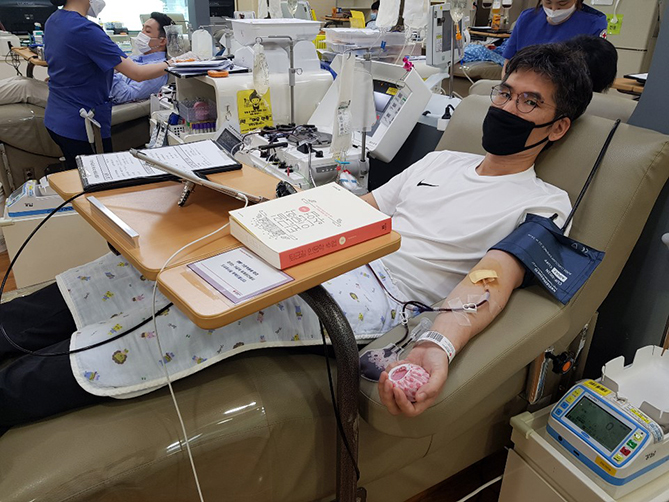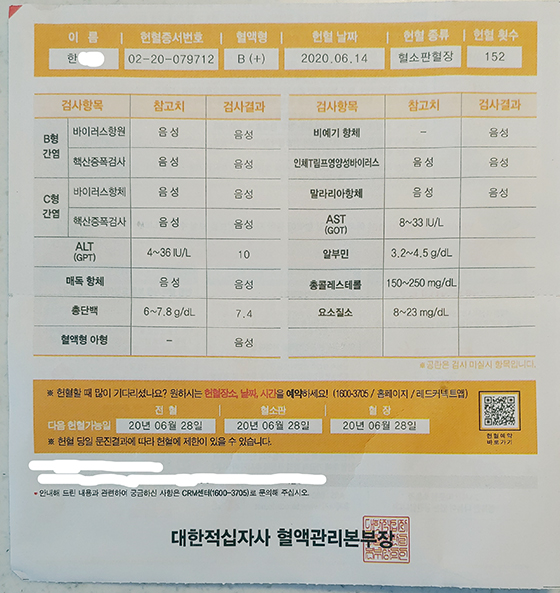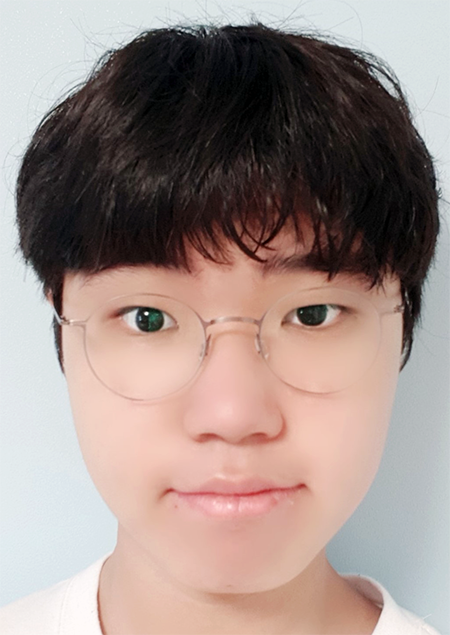Did you know that June 14 is World Blood Donor Day? This day was designated by the World Health Assembly in 2005 for the purpose of thanking blood donors and encouraging more people to donate blood. According to the Korean Red Cross Blood Services, since the outbreak of COVID-19, the number of blood donations has dropped 15% compared to last year. To address this problem, more people need to donate blood, and the Central Disaster and Safety Countermeasures Headquarters launched a campaign to promote blood donation. My father has been donating blood for almost 30 years and has continued to do so during the COVID-19 pandemic, making me feel very proud.
One of the many noble things that we can do for our fellow human beings is donate blood. One person’s blood donation can save the lives of up to three people. About 250,000 people in Korea donate blood, accounting for five percent of the population. I asked my father, who first donated blood at the Severance Hospital Blood Bank when he was a first-year university student, what made him decide to start donating blood. He told me that it was his late mother(my grandmother)’s wish to donate blood, but she could not because she had Hepatitis B, which made her ineligible to donate blood. She did, however, donate her cornea instead when she passed away.

I asked my father how many times he had donated blood so far, and I was surprised to find out that it was 152 times over 29 years. That means that he has donated blood five times every year, and his last donation was in June this year. He wishes to continue donating blood as long as he is physically able to. In Korea, anyone under the age of 70 can donate blood, which means that he has about 20 more years to continue doing so. “I hope to be healthy enough to be able to donate blood until then,” he added. He believes that it is a privilege to be able to donate blood because only healthy people can do it.
There is a stigma about donating blood; some people think that losing so much blood can harm a healthy person. I asked my father if he had ever thought about this or felt physically different after giving blood. He explained that he had never experienced any negative effects during or after a blood donation, and he had even donated blood during exam season back in university just to see if it would affect him, and he found that it did not. Before each blood donation, a simple blood test is done, and a more detailed test is done after the blood donation, the results of which are sent to the donor’s home. My father treats this like a mini health check-up offered by the Korea Red Cross. In the past, the results were sent to the donor’s home by regular mail only, but now, you can check the results using a mobile application.
I asked my father if he has observed any changes regarding blood donation in the last 30 years. He said, “At first there were only ‘whole blood’ donations, which meant that we coulddonate blood only every two months. But since the mid-90’s, there has been four types of blood donations in Korea: whole blood, plasma, platelets, and plasma platelets, thanks to the advancement of technology.” As a result, it is now possible to donate blood more often than every two months. My father continued to say that no technology today can “make” blood, and that blood can only come through donations from others. Blood is even used to make some medicines. Human beings rely on blood in so many ways.

There is something else that my father signed up to donate: his hematopoietic stem cells. My father signed up for this in 1999 and very recently got a call from the Catholic Hematopoietic Stem Cell Bank telling him that he could be a suitable donor for a cancer patient who needs blood stem cells. Before he donates, he will need to go through more tests to make sure that he is aperfect match. Unlike blood, which can be transfused to anyone with the same blood type, the donor and recipient of hematopoietic stem cells must be a perfect match, which is why the chances of finding the right match is one in tens of thousands among unrelated people. My father said, “If I am indeed a suitable match for the stem cell transplant, it will be a life-changing experience for me, saving another person’s life.”
Donating blood is something that most healthy people can do as long as they are willing to, as is donating hematopoietic stem cells, although it is a rare opportunity that takes more time and effort. Helping people get healthier and even helping save the lives of others by donating blood is something that needs to be highlighted and praised much more than it is today. Knowing that my father has donated blood for so long makes me proud to be his son, and I am already looking forward to the day that he takes me for my first blood donation when I turn 16.

Sewon Han
Sophomore
Shepherd International Education

